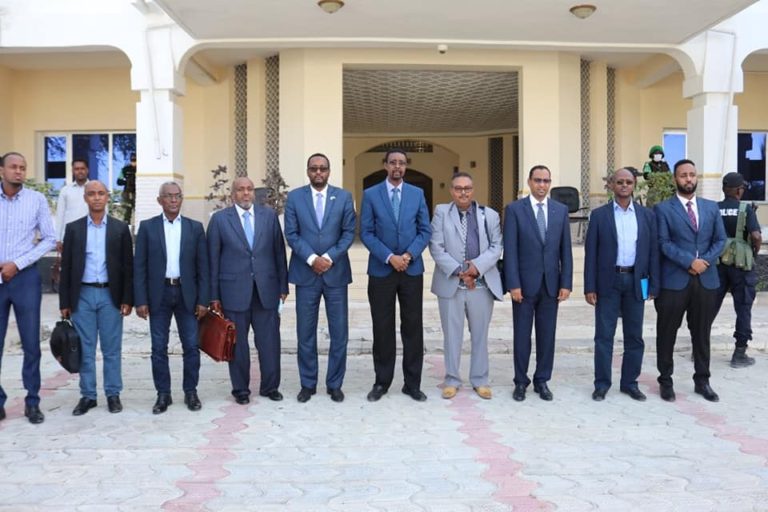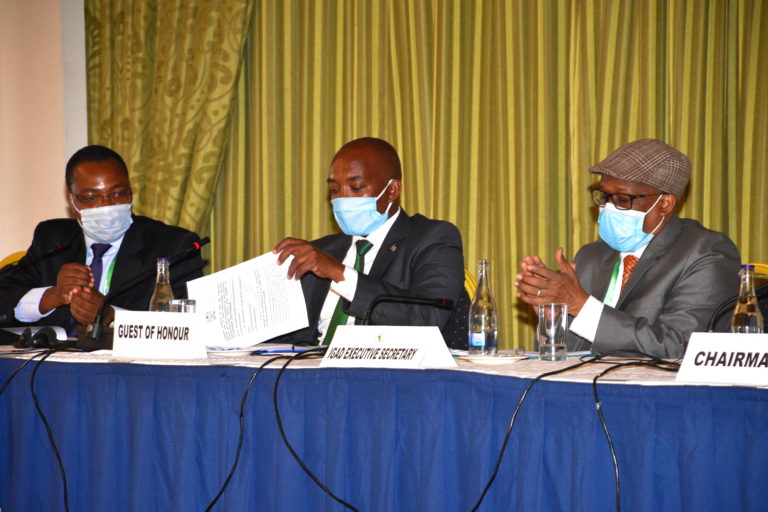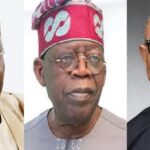On November 29 last year, the Federal government of Somalia broke its diplomatic ties with Kenya, after accusing Nairobi of meddling with its internal and political affairs. This was in the wake of elections in the Somali Jubaland state and marked the beginning of a row between the two countries that saw them go to the Intergovernmental Authority on Development (IGAD), in search of a solution.
This was then followed by Mogadishu recalling its ambassador to Nairobi, Mohamud Ahmed Nur Tarsa, and also ordering his Kenyan counterpart Lucas Tumbo to return to Nairobi.
Mohamed Ali Nur, the permanent secretary at the Somali Ministry of Foreign Affairs said, “The government took this decision while preserving its national sovereignty after it appeared that Kenya was deliberately interfering in the affairs of Somalia, particularly Jubaland.”
On December 15, Mogadishu then reiterated its decision to cut ties with Nairobi, a day after Kenya welcomed the president of Somaliland, H.E. Musa Bihi Abdi in what the Kenyan Foreign Ministry said were talks between President Uhuru Kenyatta and his Somaliland counterpart on matters of mutual interests between the two countries.
“The Federal Government of Somalia inevitably decides to sever its diplomatic relations with the Republic of Kenya as result of constant interference in the internal and political affairs of Somalia. This is a violation of the African Union’s Constitutive Act and is an affront to the peaceful coexistence of African nations,” a statement from the Ministry of Foreign Affairs of Somalia had read.
On its part, while welcoming the Somaliland president in Nairobi, Kenya held that it has no diplomatic presence in Somaliland but takes cognizance of the political and economic stability of the region and is keen to enhance and broaden trade in goods and services, as well as, investment as the cornerstone for long-term development cooperation with the region.

“This is the second visit by a Somaliland leader following a similar one by President Kahin Riyale Kahin in 2006. Somaliland is an important partner in the Horn of Africa region in the fight against terrorism and particularly Al-Shabaab,” the Foreign Affairs Ministry in Nairobi said in a statement.
As the row between Kenya and Somalia continued to escalate, Somalia wrote to H.E. Dr. Abdalla Hamdock, the Chairperson of IGAD, bringing the matter to his attention and requested IGAD to call for an emergency meeting.
IGAD is an eight-country trade bloc in Africa created in 1996 to supersede the Intergovernmental Authority on Drought and Development (IGADD), which was founded in 1986 by six countries namely Djibouti, Ethiopia, Kenya, Somalia, Sudan, and Uganda. It now includes governments from the Horn of Africa, Nile Valley, and the African Great Lakes as Eritrea became the seventh member after attaining independence in 1993 and South Sudan joined in 2011. Its headquarters are in Djibouti.
Through the consent of both the Federal Government of Somalia and the Government of Kenya, the fact-finding mission began its mandated work on the 9th of January 2021, after IGAD tasked its host country, Djibouti to be in charge and led by its ambassadors to Somalia and Kenya, Aden Hassan Aden and Yacin Elmi Bouh respectively; with a series of visits to Kenya and what the Somali Foreign Affairs Ministry says could only be termed as a fleeting visit to Somalia.
In a statement rejecting the findings of the mission, Mogadishu accused the delegation of aiding Kenya to fan chaos in Somalia.
“On the 25th of January, the very militia supported by the KDF with Mortar rounds, attacked Balad Hawo, the flash-point the FGS raised during the 38th IGAD Head of State and Government meeting, resulting in the death of 14 civilians, including women and five children, from the same family. This wanton disregard for international norms by the Republic of Kenya followed shortly after the fact-finding mission deliberately chose to limit its visit to Somalia and renege on the agreement to meet with ministers and visit Balad Hawo. This act undoubtedly has emboldened the Kenyan Government,” Mogadishu had said in a statement through its Foreign Affairs Ministry on January 28.
“The perpetrators of the attack were trained, fed, and supported by the KDF a fact corroborated on Kenyan TV stations by MPs from the Northern Frontier District, the very people who are a witness to these crimes. Incredulously, the mission was more interested in concealing the whereabouts of this militia to appease the Kenyan Government,” the statement further stated.

In response, Kenya’s spokesperson, Col. (Rtd) Cyrus Oguna said that Somalia should be able to tackle its own issues without involving Kenya.
“We are calling on Somali leadership to desist from dragging Kenya into their domestic issues. We will however continue to push for peace and therefore urge all leaders in Somalia to create an environment that will facilitate the resolution of the conflict through dialogue. This is critical in fostering a united front in countering militants who have, for a long time, destabilized peace and security in Somalia and the region,” Oguna said.
He further added that Kenya has been a good host for Somalia, hosting and giving asylum to its citizens whenever there are skirmishes in Somalia and as well as hosting many Somali students in schools at the border county of Mandera, as well as businessmen across the country. Also, Oguna said that Kenyan troops are in Somalia under the African Union peace mission and therefore were not going to be recalled.
“As a people, Kenyans are known the world over for their generosity and hospitality, perhaps more so by Somalis, who have found refuge in this country for more than two decades. While in the country, they continue to enjoy almost equal privileges as Kenyans. Due to this, it is here that most Somalis run to whenever violence breaks out in their country. They still do cross over into Kenya to seek certain services,” he said.
Oguna continued to point out that there are 3,000 learners who cross every day, particularly around Mandera, to pursue education, while 8,000 individuals cross over to conduct business in Mandera. Additionally, more than 500 mothers and the elderly cross for medical services. This is beside the over 270,000 refugees who are hosted at refugee camps, out of which, 81,000 are urban refugees, most of who are conducting businesses in many of our urban centers.
On the matter of the KDF’s presence in Somalia, Oguna said that they were there validly. “It is important to note that, in its report, the Commission concluded that the Kenya Defense Forces (KDF) is validly in Somalia, just like any other regional military that is operating within the AU mandate,” he said.
However, Somalia held that it was going to pursue all means possible to ensure that the matter is resolved and that Kenya stops “meddling in its affairs”.
“The Federal Government of Somalia will continue to defend its borders, by all means necessary, and will not tolerate attempts to destabilize the Federal Member States. Concurrently, Somalia will continue to exercise considerable restraint, call on IGAD to rescind this frivolous report and to commission a multinational fact-finding mission. Mogadishu reserves the right to seek redress through diplomatic means via the African Union and if necessary the United Nations Security Council,” concluded the statement from the Somali Foreign Affairs Ministry.

















